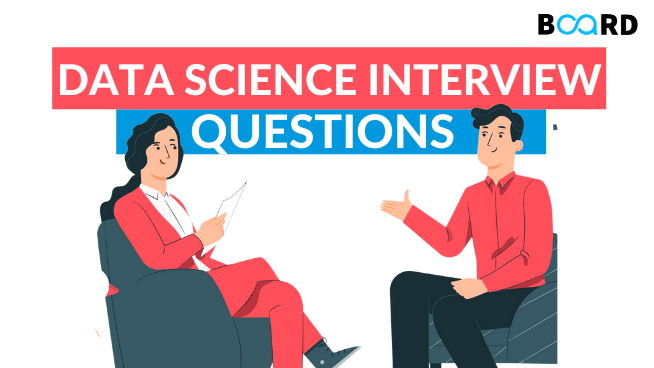Excelling Interviews for Specific Roles and Fields
Top 4 Data Science Job Interview Questions And Answers for Freshers

Being called the ‘Sexiest job of the 21st century’ by Harvard Business Review, data
science is the next big thing and data scientists are rockstars. As per research by IBM, it predicts the demand for data scientists will soar by 28%, by 2020.
Why is this growing so much?
Because employers use data science to derive insights from raw data to solve most of their problems. Solutions originating from data analysis are more logical and accurate. For this kind of an interview, the interviewer will ask a wide range of questions which will test your technical knowledge and your communication skills too. Here’s a list of frequently asked data science interview questions (with answers) which will help you prepare for, and ace the data science interview.
1. What is Linear Regression?
Statistics is the backbone of data science. It’s only using methods of statistics that the data scientists analyze raw data and create predictions and solutions. You need to have advanced knowledge of statistics for being a successful data scientist. The interviewer will test your fundamentals of statistics for sure. As far as the answer goes, in applications of data science, scientists are very much interested in the relationship between two or more variables. Linear regression is a powerful statistical method that is commonly used to quantify and correlate that particular relationship, hence it is also commonly used in research. Other questions about sampling methods, Type I and Type II errors, P-value, R squared value etc., maybe be asked.
2. Which Programming language are you comfortable working with?
Recruiters will definitely also ask you about your programming knowledge and test your skills. To test it, they might ask you to do two things. One, they might ask you to solve the programming problems without writing the code on paper and/or two, they might ask you to code a few exercises on the spot. When they ask you about your comfort level, be honest and tell them about the programming language you’re most proficient in and demonstrate the willingness to learn and adapt to a new language if needed. Other questions like the pros and cons of any statistical analysis software (SPSS, for instance), your contribution to original algorithms or any data science projects or open-source projects, Hadoop framework, Python etc.
3. What’s your favourite Data Visualization Technique?
This falls under data modelling. This is what is of ultimate value to organizations.
Converting data into actionable results is difficult, so use data models to describe your past experiences: what techniques were used, what were the challenges faced, whether the project was successful. The question above is used to test your education and knowledge you’ve had formally about data modelling techniques. If you fail to describe any technique’s theory and assumptions, it won’t have a great impression on the recruiter. Some other questions that can be asked are about logistic regression models, time series model, representing data in 5D, K means clustering, L1 and L2 regularizations etc.
4. Tell me about the time when you solved a conflict/problem
Behavioural questions are a recruiter’s favourite because they reveal more information about the candidate than intended. The candidate’s attitude, demeanour, team spirit, problem-solving aptitude, acceptance of failure etc.. all can be judged by these questions. With the above question, the hiring manager wants to see how you have reacted to situations in the past, or how well you have performed your job role and your problem-solving ability. Be ready with such instances beforehand so you have a situation to speak about in the interview. Be logical with your answer and go stepwise. Other questions that can be asked are when did you take initiatives, did you fail, how did you overcome challenges, how do you motivate yourself, how do you balance your professional and personal life, etc.
You can see there’s no prescribed formula for preparing for such data science interview questions. But be confident and know your theory well to tackle all questions correctly.
If you're curious and want to learn skills and in-demand data science technologies, you can have a look at our data science learning path. If you need help with sector-specific interview preparation from an experienced expert - Know more
